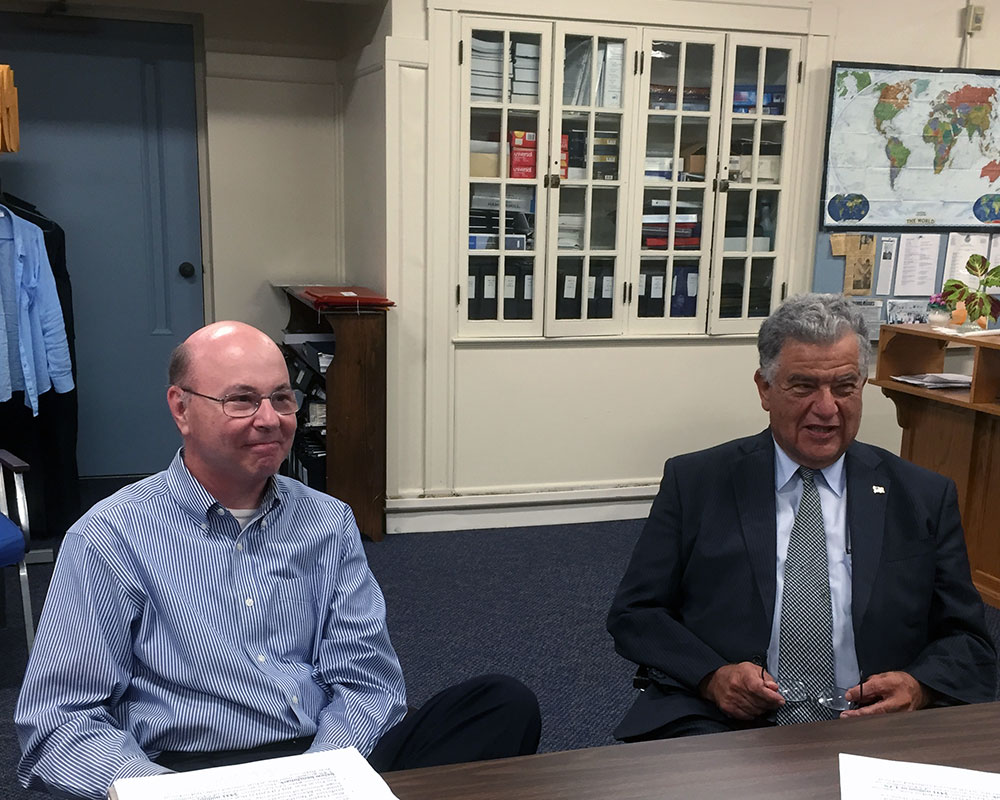Haverhill hopes to avoid layoffs, fill all vacant police positions and still increase school spending during the year that begins July 1.
Mayor James J. Fiorentini submitted his $205.5 million city budget to the Haverhill City Council Thursday, saying he plans to take $5 million from the city’s surplus—known as “free cash”—and $2 million from the city’s “rainy day” fund and cut other expenses to make ends meet. The mayor, however, tells WHAV all bets are off if the state does not at least maintain the same amount of education aid as last year.
“The big gamble in this budget is that we gambled the school—although (the state) would not increase Chapter 70. They would not be able to do the Student Opportunity Act. We’d all like them to—that they would not actually cut Chapter 70,” he explains.
While the budget assumes level funding of education by the state, the mayor says, it also takes into account an expected 20% drop in unrestricted local aid. The mayor says his two spending priorities are bringing the police force up to 109 officers and increasing school spending by $1.7 million—up 2 percent from $89 million to $90.7 million.
The mayor says there will still be at least $5 million in city surplus after the state certifies the total this fall and $4 million will remain in the rainy-day fund in expectation of a two- to three-year drop in revenues. Fiorentini explains what steps he took to cut expenses.
“As soon as the pandemic hit and it was apparent revenues were going to go down, I immediately imposed a hiring freeze—froze a number of open positions. I imposed a spending freeze and said that any expenditures over $5,000 had to be approved by me and I put a stop to anything, but the most basic, emergency capital projects,” he says.
The mayor’s office says of the $2.4 million in cuts, $2.1 million came from salaries and operating expenses and another $300,000 came from major building repair or construction projects. Spending cuts include trimming back the city’s street and sidewalk improvement projects.
The city budget still increases by about $2.5 million or 1.2% which, the mayor acknowledges, means taxes will go up. “I fully recognize that people are hurting—that this is difficult. We want taxes to go up as little as possible. I wish it were possible for no tax increase, but it’s been since 1950 that taxes haven’t crept up a little.”
It is now up to the City Council to review the budget and make any cuts it wishes. Although councilors do not have authority under the charter to add money to the budget, it has managed to win 11th hour concessions from the mayor in previous negotiations.

